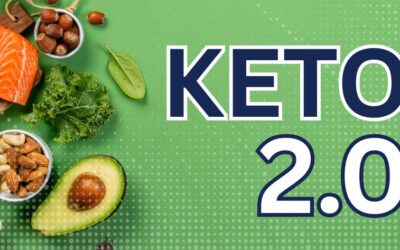Nitric oxide is like the porridge in Goldilocks and the Three Bears: not too much and not too little– you want just the right amount! With that said, most people are low in nitric oxide, and it is considered one of the most imperative molecules produced in the body. This one molecule controls oxygen and nutrient delivery to every cell, cellular communication, and acts as an antimicrobial to protect the body from pathogens.
Health Impact of Low Nitric Oxide Levels
The decline in nitric oxide (NO) production is known as the primary event in the initiation and progression of most, if not all, chronic diseases, including the leading cause of mortality worldwide – cardiovascular disease. The body typically generates NO through two pathways; one involves the conversion of the amino acid L-arginine, but this process is impeded by factors such as aging, oxidative stress, poor diet, lack of exercise, smoking, diabetes, and a high-sugar diet.
The second pathway relies on nitrate and nitrite naturally present in certain foods. Each pathway contributes approximately 50% to the overall NO production, with one compensating for the other. However, when NO production from both pathways becomes constrained, it marks the onset of health issues.
Nitric Oxide Facts
- NO is a potent vasodilator that helps keep your arteries open and clean from plaque build up
- NO is made by every cell in the body, but production declines by 10-12 percent per decade, beginning in the early 20s. By the age of 40, the body only makes 50%.
- Low nitric oxide production is associated with all major cardiovascular risk factors.
- Prescription drugs including proton pump inhibitors, NSAIDS, and cholesterol lowering statin drugs block the production of nitric oxide.
- Low nitric oxide production is due to the inability to convert L-arginine into nitric oxide, so products that contain L-arginine or L-citrulline are not always effective at restoring nitric oxide.
- Nitric oxide helps lower high blood pressure and improves anti-aging properties.
- Nitric oxide is responsible for blood vessel dilation in the sex organs and is critical for optimal sexual function.
Causes of Low Nitric Oxide
Several factors can contribute to low nitric oxide (NO) levels in the body. Nitric oxide plays a crucial role in a range of physiological functions, including blood vessel dilation, immune response, and neurotransmission. Here are some common causes of low nitric oxide in the body:
- Aging: The natural aging process is associated with a decline in nitric oxide production. As people age, the efficiency of enzymes involved in NO synthesis may decrease, leading to lower NO levels.
- Oxidative Stress: Oxidative stress, caused by an imbalance between free radicals and antioxidants in the body, can impair the function of enzymes responsible for nitric oxide synthesis. Exposure to environmental toxins, pollution, and certain lifestyle factors can contribute to oxidative stress.
- Poor Diet: A diet lacking in essential nutrients, including amino acids like L-arginine and antioxidants, can negatively impact nitric oxide production. Consuming foods rich in these nutrients, such as fruits, vegetables, and nuts, can support NO synthesis.
- Lack of Physical Exercise: Regular physical activity has been shown to enhance nitric oxide production. Sedentary lifestyles may contribute to lower levels of NO.
- Smoking: Tobacco smoke contains harmful chemicals that can damage blood vessels and impair the function of enzymes involved in nitric oxide synthesis. Smoking is a significant contributor to low NO levels.
- Antiseptic Mouthwash: Nitrate, a compound found in certain foods like leafy greens, is converted into nitrite by bacteria in the mouth. Nitrite, in turn, can be converted into nitric oxide in various tissues, contributing to the body’s overall NO levels. Some studies suggest that using antibacterial mouthwash, which kills bacteria in the mouth, may disrupt the conversion of nitrate to nitrite. This is because the mouthwash eliminates the bacteria responsible for this conversion process. If the conversion of nitrate to nitric oxide is disrupted, it may potentially lead to lower nitric oxide production in the body. Nitric oxide is essential for maintaining healthy blood vessels and cardiovascular function.
- Acid Reflux Medications: Nitric oxide is vital for maintaining healthy endothelial function, which is the ability of blood vessels to dilate and regulate blood flow. PPIs, by potentially affecting nitric oxide production, may contribute to endothelial dysfunction, which is linked to cardiovascular issues. Nitric oxide plays a role in regulating the motility of the gastrointestinal tract. Some studies suggest that PPIs may impact this motility by affecting nitric oxide levels, potentially leading to issues such as delayed gastric emptying.
- Medical Conditions: Certain medical conditions, such as diabetes, cardiovascular disease, and hypertension, can be associated with impaired nitric oxide production. Inflammation and endothelial dysfunction play a role in these conditions, affecting NO synthesis.
- High Sugar Diet: Excessive intake of sugar and refined carbohydrates can contribute to insulin resistance and metabolic dysfunction, negatively impacting nitric oxide production.
- Genetic Factors: Genetic variations can influence the activity of enzymes involved in nitric oxide synthesis. Some individuals may have a genetic predisposition to lower NO levels.
- Insufficient Sunlight Exposure: Sunlight exposure helps the skin produce nitric oxide. Lack of exposure to sunlight, especially in regions with limited sunlight during certain seasons, may contribute to lower NO levels.
- Iodine Deficiency: Iodine deficiency is the number one reason for mitochondrial failure, and the mitochondria are responsible for nitric oxide and other redox molecule production.
Symptoms of Nitric Oxide Deficiency
Low nitric oxide (NO) levels can impact various physiological processes, and symptoms associated with NO deficiency may manifest in different systems of the body. It’s important to note that these symptoms can be indicative of various health conditions, and low NO levels may be just one contributing factor. Here are some potential symptoms of low nitric oxide:
Cardiovascular Symptoms
- Hypertension (High Blood Pressure): NO helps relax blood vessels, contributing to lower blood pressure. Reduced NO levels may lead to increased vascular resistance and elevated blood pressure.
- Poor Circulation: Inadequate NO can affect blood vessel dilation and impair blood flow, leading to symptoms such as cold extremities and poor circulation.
Sexual Dysfunction
- Erectile Dysfunction: NO is crucial for the dilation of blood vessels in the genital area. Low NO levels may contribute to difficulty achieving or maintaining an erection.
Exercise Intolerance
- Reduced Exercise Performance: NO plays a role in increasing blood flow to muscles during exercise. Low NO levels may result in decreased exercise tolerance and performance.
Cognitive Symptoms
- Memory Issues: NO is involved in regulating cerebral blood flow and supporting neural function. Deficient NO levels may be associated with cognitive impairment and memory issues.
Immune System Dysfunction
- Increased Susceptibility to Infections: NO is a signaling molecule in the immune system, playing a role in defense against pathogens. Low NO levels could impact immune function and increase susceptibility to infections.
Endothelial Dysfunction
- Endothelial Dysfunction: NO is crucial for maintaining healthy endothelial function. Deficiency may contribute to endothelial dysfunction, which is associated with cardiovascular issues.
Respiratory Symptoms
- Shortness of Breath: NO plays a role in regulating airway dilation. Reduced NO levels may contribute to respiratory symptoms such as shortness of breath.
Digestive Symptoms
- Gastrointestinal Issues: NO is involved in regulating gastrointestinal motility and blood flow. Low NO levels may contribute to digestive problems.
General Fatigue
- Fatigue and Weakness: Inadequate NO can affect oxygen delivery to tissues, potentially contributing to feelings of fatigue and weakness.
Top Four Supplements to Increase Nitric Oxide Naturally
Acceleradine® Iodine
The mitochondria are responsible for nitric oxide production, and iodine can strengthen mitochondrial health and increase the ATP in the mitochondria. Iodine deficiency is the number one cause of mitochondrial failure, and the majority of the population is iodine deficient. By increasing iodine stores in the body, the mitochondria can optimally produce nitric oxide.
Acceleradine® Iodine is the only single atom of iodine that is 100% bioavailable to the trillions of cells in the body. Most iodines come from radioactive and toxic sources in Asia polluted by Chernobyl and Fukushima; Acceleradine® Iodine comes from deep mines in South America. Furthermore, Acceleradine® is enhanced with scalar frequencies to help detox the thyroid and all cells of radiation and toxins that inhibit nitric oxide production.
Accelerated Scalar Copper®
Copper plays a role in the synthesis and function of nitric oxide (NO) in the body. Nitric oxide is a crucial signaling molecule involved in various physiological processes, including vasodilation (widening of blood vessels), immune response, and neurotransmission. Here’s how copper is related to nitric oxide:
- Cofactor for Nitric Oxide Synthase (NOS): Nitric oxide is synthesized by enzymes called nitric oxide synthases (NOS). Copper serves as a cofactor for these enzymes, supporting their activity in the conversion of the amino acid L-arginine into nitric oxide.
- Enzymatic Reactions: Copper is involved in the catalytic activity of NOS, facilitating the conversion of L-arginine to nitric oxide and citrulline. This process occurs in various tissues, including blood vessels, where nitric oxide plays a key role in regulating blood flow and vascular tone.
- Role in Mitochondrial Function: Copper is also associated with mitochondrial function, and nitric oxide produced within mitochondria may influence cellular respiration and energy production.
N1O1 Nitric Oxide Lozenges
N1O1 Nitric Oxide Lozenges incorporate a sophisticated delivery system designed to offer an external supply of nitric oxide, potentially resulting in the following benefits:
- Boosting nitric oxide production
- Improving the delivery of oxygen and nutrients to cell
- Promoting cardiovascular health
- Assisting in maintaining normal heart function
- Enhancing healthy blood circulation and blood pressure
- Facilitating optimal blood flow to the brain and other organs
- Providing antioxidant support
- Supporting cognitive function and memory
- May alleviate erectile dysfunction
N.O. Beetz Nitric Oxide Sticks
N.O. Beetz provides the full power of beets without the dangerous oxalates found in other beet formulas. It not only helps increase nitric oxide, but also increases ATP and rejuvenates each cell in the body, as well as further improving hydration at the cellular level.
Lifestyle Changes to Help Increase Naturally Nitric Oxide

Relying on supplements alone to improve nitric oxide isn’t sufficient; the lifestyle changes below will help optimize nitric oxide production and improve overall health.
- Stop Acid Reflux Medication: Maintaining optimal endothelial function is essential for the dilation and regulation of blood vessels, ensuring proper blood flow. Proton pump inhibitors (PPIs) have the potential to influence nitric oxide production, possibly contributing to endothelial dysfunction, a condition associated with cardiovascular problems. Nitric oxide is involved in controlling the motility of the gastrointestinal tract; research indicates that PPIs might influence this motility by affecting nitric oxide levels, potentially resulting in complications such as delayed gastric emptying. To help alleviate GERD or acid reflux naturally, refer to the tips in my article Exploring Supplements That Alleviate GERD
- Ditch the Mouthwash: Certain research indicates that the use of antibacterial mouthwash, designed to eliminate oral bacteria, might interfere with the conversion of nitrate to nitrite. This is attributed to the mouthwash eradicating the bacteria responsible for this conversion process. If the transformation of nitrate to nitrite is hindered, it could result in reduced nitric oxide production in the body. Nitric oxide is crucial for sustaining healthy blood vessels and supporting cardiovascular function.
- Ditch the Fluoride Toothpaste: Excessive fluoride exposure inhibits the synthesis of NO.
- Exercise: Exercise has a significant impact on nitric oxide (NO) production in the body, and the relationship between exercise and NO is crucial for important physiological functions.
How Exercise Influences Nitric Oxide:
- Increased Nitric Oxide Synthesis: Physical activity, particularly aerobic exercise and resistance training, stimulates the production of nitric oxide. The increased demand for blood flow to working muscles triggers the release of NO in order to dilate blood vessels, improving oxygen and nutrient delivery.
- Improved Endothelial Function: Regular exercise positively influences endothelial function, which is essential for nitric oxide release. Healthy endothelial cells contribute to optimal NO synthesis, supporting cardiovascular health.
- Blood Pressure Regulation: The vasodilatory effect of nitric oxide helps regulate blood pressure. Exercise-induced NO production contributes to maintaining healthy blood pressure levels.
- Mitochondrial Biogenesis: Exercise stimulates mitochondrial biogenesis, the process of creating new mitochondria within cells. Mitochondria play a role in nitric oxide production, and their increase can positively impact NO levels.
- Impact on Inflammatory Response: Exercise has anti-inflammatory effects and can reduce oxidative stress. This, in turn, supports nitric oxide function by protecting it from degradation due to inflammation and oxidative damage.
- Enhanced Nitric Oxide Bioavailability: Regular physical activity may enhance the bioavailability of nitric oxide by increasing the expression of nitric oxide synthase (NOS), the enzyme responsible for NO synthesis.
- Endurance and Performance: Improved blood flow and oxygen delivery facilitated by nitric oxide can enhance endurance and exercise performance. This is particularly relevant in aerobic activities.
Sara Banta
Sara Banta is a Stanford University Graduate with a Degree in Economics and Psychology, and a certified Natural Supplement Expert & Graduate of the Institute for Integrative Nutrition. Sara is the Founder of Accelerated Health Products and host of the health & wellness podcast, Accelerated Health Radio.









